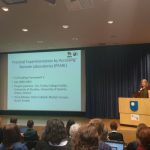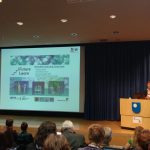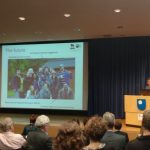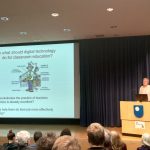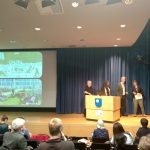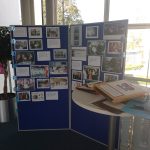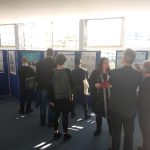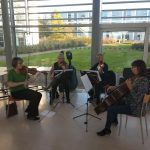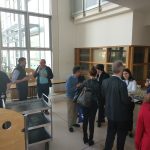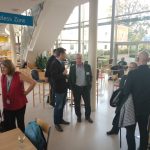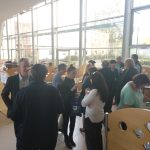Last Friday 19th of October we could enjoy and celebrate together 40 years of research with CALRG. The full-day event counted with a welcome and introduction from Prof. Mary Kellett and Prof. Hazel Rymer.
The event hosted two exceptional keynotes: Prof Diana Laurillard, Chair of Learning with Digital Technologies from UCL Knowledge Lab and Prof. Neil Mercer, Emeritus Professor of Education at the University of Cambridge.
The Programme was organised around four sessions which define CALRG’s research:
- VISION ONE: Learning should be accessible to everyone.
Kate Lister, Eileen Scanlon and Martin Weller, illustrated how OU research has pushed at the boundaries of what technology can do using what is available at the time, paving the way for persistent intent and technological advances to prove the value of the research and application to practice. During the presentations, ways to work with audiences, including participatory and collaborative approaches were explored. There was a reflection on the progression from foundations to current work, and on to visions for the future
- VISION TWO: Teaching is adapted to meet learners’ needs
Bart Rientes and Ann Jones explained the introduction of learning design in early 2000 and learning analytics in 2012; the OU has led the way in how teachers make complex decisions to design interactive courses, and how students can maximise their learning potential. The next steps would be to include AI, personalisation, and student-led learning analytics to provide learning opportunities that meet the unique needs of each learner.
- VISION THREE: Teams can successfully teach any number of students at a distance
Patrick McAndrew discussed how a research group at the heart of one of Europe’s largest universities, CALRG has always investigated ways of using technologies to support the teaching of large numbers of students. The social and dialogic elements of distance learning have been at the centre of this work, as have ways of integrating interaction into the learner experience. CALRG was at the forefront of moves towards online and open education.
- VISION FOUR: Learners engage enthusiastically with science learning
Eileen Scanlon and Christothea Herodotou considered the work made on the conceptual change in science and the development of pedagogy and technology on personal inquiry using nQuire, and include work integrating these developments into the Open Science Laboratory. All this work has included evaluation of other innovative pedagogical supports such as the Virtual Microscope both in the UK and some other UK and EU universities.
The event included “Visions reflections” by Prof. Tim O’Shea and Prof. Mike Sharples and a poster competition for PhD research students. The journey ended with an evening reception sponsored by OpenTEL
